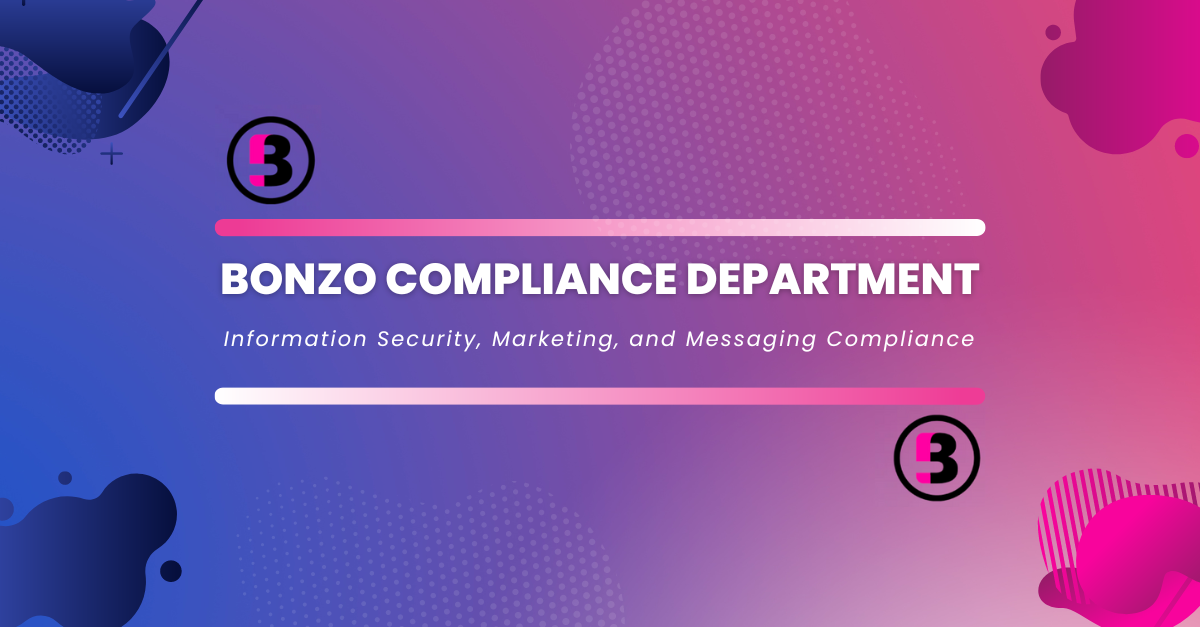Disclaimer: This is not legal advice. Bonzo recommends contacting an attorney with expertise in this area of practice, and/or your compliance department concerning how these regulations directly impact you and your specific use case.
The Telephone Consumer Protection Act (TCPA) has, in conjunction with the FTC's "Telemarking Sales Rule" are the cornerstone regulations concerning outreach via calling, faxing (blast from the past), and messaging--the first two overtly described within the TCPA, while the latter has been "read into" the statute by courts during litigation.
Broadly, TCPA covers two distinct "classes," the first being communication with an "Automated Telephone Dialing System," the definition of which is quite fluid, as it's primarily defined through judicial precedence, and contacting those on the Do Not Call (DNC) list. Thus, we recommend ensuring and confirming express, prior, written consent is obtained prior to reaching out to a new lead (we'll be diving deep into this topic in another post)--and scrubbing your list against the DNC and known litigators.
And that's really where the TCPA gets its teeth--the "private right of action" (or, in laymen's terms, the ability for anyone in the United States to sue for damages) it affords.
Thus, while the Federal Communications Commission (FCC) enforces the TCPA, it's generally Class Actions brought through the plaintiff's bar that garner most media attention (and high award amounts).
This is especially important now, with important new FCC rules surrounding lead generation and consent slated to go into effect later this year (2024) and early next year (2025) and Congress' "Do Not Disturb Act," which would greatly expand the definition of regulated technology, like ATDSs.
New Rules:
The FCC's last open meeting of 2023 included a new rule concerning the closure of what the Agency calls the "Lead Generation Loophole." Simply, it's referring to lead aggregation websites obtaining "blanket consent" and stretching the meaning of what you're actually consenting to.
An example, let's say you're looking for a new home, and you'd like to learn more about home loans. You go to a lead generation website, put in your information, and consent to learning more about "home loans."
Immediately, your information is sold to anyone tangentially related to acquiring home loans, including obvious ones, like mortgage loan officers, but also those less logically related--for example home insurance, lawn care, and general contractors.
There's no question these services may provide a great value to you as a consumer, but you didn't necessarily consent to your information being shared/sold to them--and the FCC aims to stop that by mandating 1:1 consent between the lead purchaser and the consumer.
Not only that, but any communication sent by the purchaser must be "logically and topically related to the website." Unfortunately, what this specifically means is not currently known, and will likely require litigation to provide a more thorough working definition.
And, as a purchaser, you'd better be certain the lead properly consented to messaging, as the FCC clarified that the onus to confirm consent is on the messenger, not the seller.
Finally, the FCC took a stronger stance with carriers, mandating the blockage of texts from numbers flagged by the FCC's Enforcement Bureau as sending illegal content.
With all of that being said, what does this mean for you?
We at Bonzo know messaging is the cornerstone of your business, and aim to do everything in our power to ensure your prospects continue to receive timely, personalized, meaningful messaging. However, depending on your current strategy, a shift may be required to stay ahead of the curve and effortlessly navigate these changes.
We're launching a multi-part series diving into the complexities of these, and other rulings (for example, we haven't yet touched much on the Do Not Disturb Act or new Opt-Out rules), and offering our insight and expertise along the way. We're also launching a "Compliant Conversations" podcast with more in-depth analysis and content from those in the field--aiming to arm you with the most up-to-date information and industry insights.
Stay tuned for upcoming posts and remember: compliance is key, and Bonzo is here to support you every step of the way 💪🏼.

